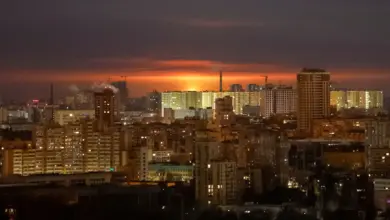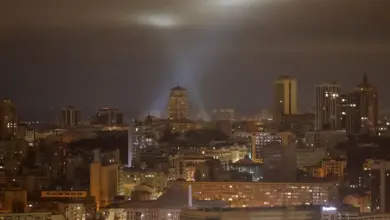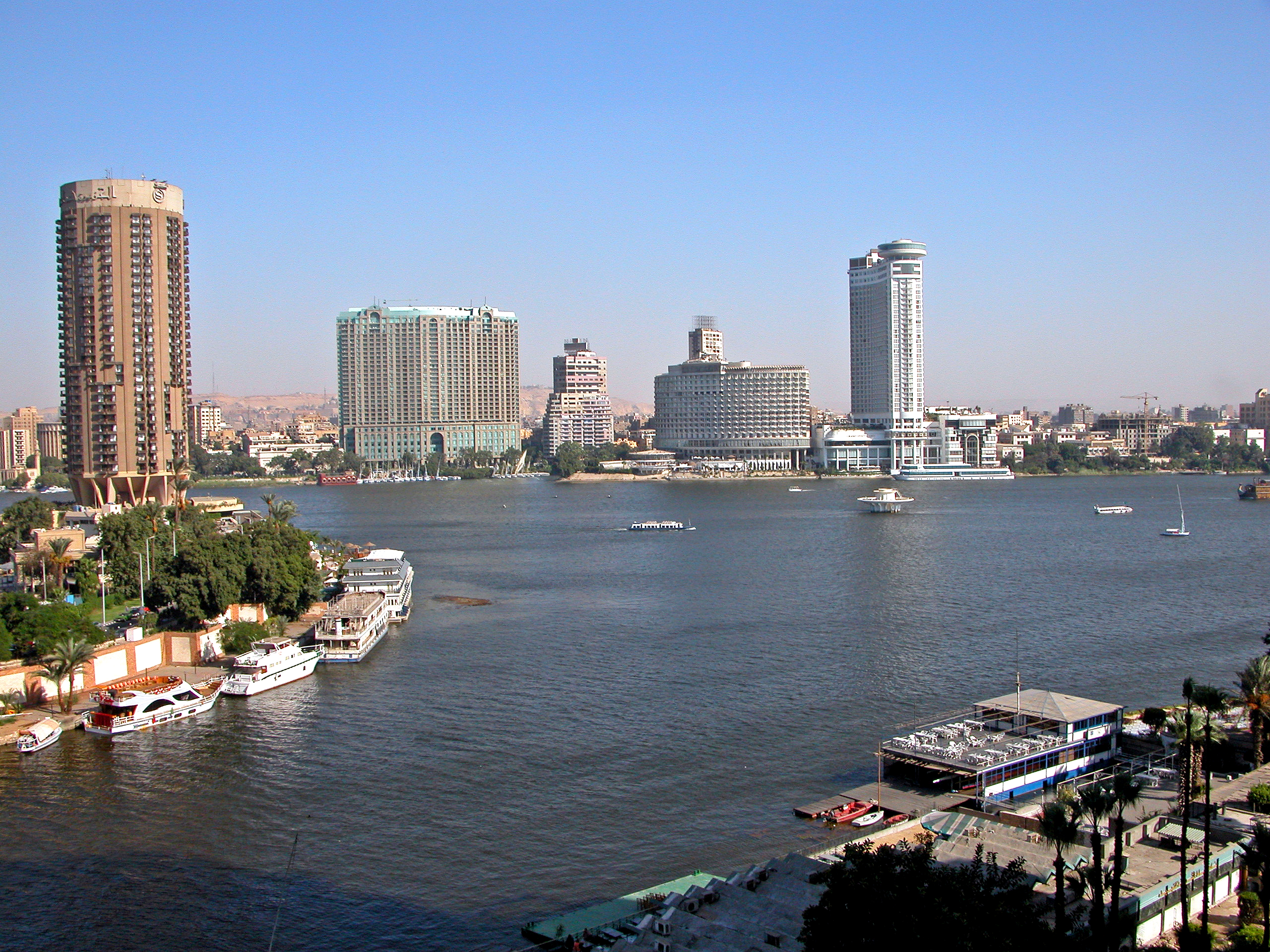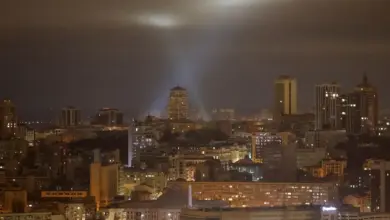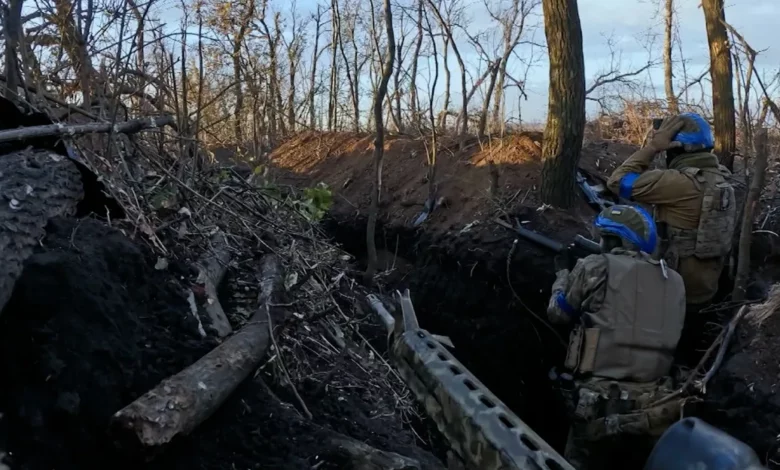
His legs have been injured by shrapnel and he is bleeding through the bandages. He smokes a cigarette as he lies on the ground, the unit’s medic crouches low in the trench trying to patch him up.
Moments before, four enemy tanks passed just meters away, forcing him and his fellow soldiers to bury themselves into the black fertile earth, which shakes as the tanks roll overhead.
The unit’s assault mission was to recapture 150-meters of trenches along the tree line in the eastern Ukrainian city of Avdiivka, which has become one of the most contested spots on the Ukrainian frontline.
Avdiivka has been on the frontlines since pro-Moscow separatists seized large portions of the Donbas region, including the nearby city of Donetsk, in 2014, and has been under fire since Russia launched its full-scale invasion in February 2022.
It is seen by Ukrainian and Russian forces as a heavily fortified stronghold, with entrenchments built up over the past eight years. Fierce fighting has raged in Avdiivka for more than a month as Russian forces launch a large-scale attack with round-the-clock shelling and waves of soldiers and armored vehicles deployed in an attempt to encircle the town.
Russian forces have been repelled by the Ukrainian troops who are heavily entrenched in the area.
Among them in Avdiivka’s trenches, the Ukrainian company’s commander Oleh Sentsov is under fire and rallying his men.
Sentsov, 47, was a famous Ukrainian filmmaker, imprisoned by the Russians for five years in 2014, and is now a soldier fighting with the 47th Mechanised Brigade, part of the Ukrainian Ground Forces.
He has fought in some of the war’s fiercest battles so far — Bakhmut, Zaporizhzhia region and now Avdiivka.
On October 19, he and his fellow soldiers filmed a 5-hour battle on helmet and body cameras, illustrating the cruelty of war and horrors of the trenches.
“We tried to get a forest landing almost 1-kilometer long. Together with two other assault groups, we attacked three positions. Our assault group had to hold a trench 150-meters wide. We went in, took 50 meters, and could not push further because there was strong resistance by a lot of enemy infantry there,” Sentsov said in a rare interview with CNN.
As Sentsov and his unit fought to hold ground in the tree line, two Russian brigades began advancing through the area.
He and his men found themselves fighting from all sides, caught in a pincer movement by Russian troops. Sentsov and his unit came under constant fire from enemy drones, artillery, and tanks passing within a few meters of their positions.
Drone footage taken by the Ukrainian military showed four Russian tanks firing on the tree line, where three Ukrainian assault groups were entrenched, spread out over a kilometer.
Sentsov’s unit, in the middle of the grouping, were the only ones to be spared.
“Of all the operations my company conducted, this was the first time we failed to complete the mission,” said Sentsov.
Three men in his team were injured, including Sentsov. A paramedic can be seen in the video working quickly to apply chest seals and bandages to her wounded comrades.
“We were driven out of there because we were not able to hold our positions. So we retreated. Our group withdrew, with injuries but survived. But the other two groups that were attacking at the same time together with us were almost completely destroyed,” he said.
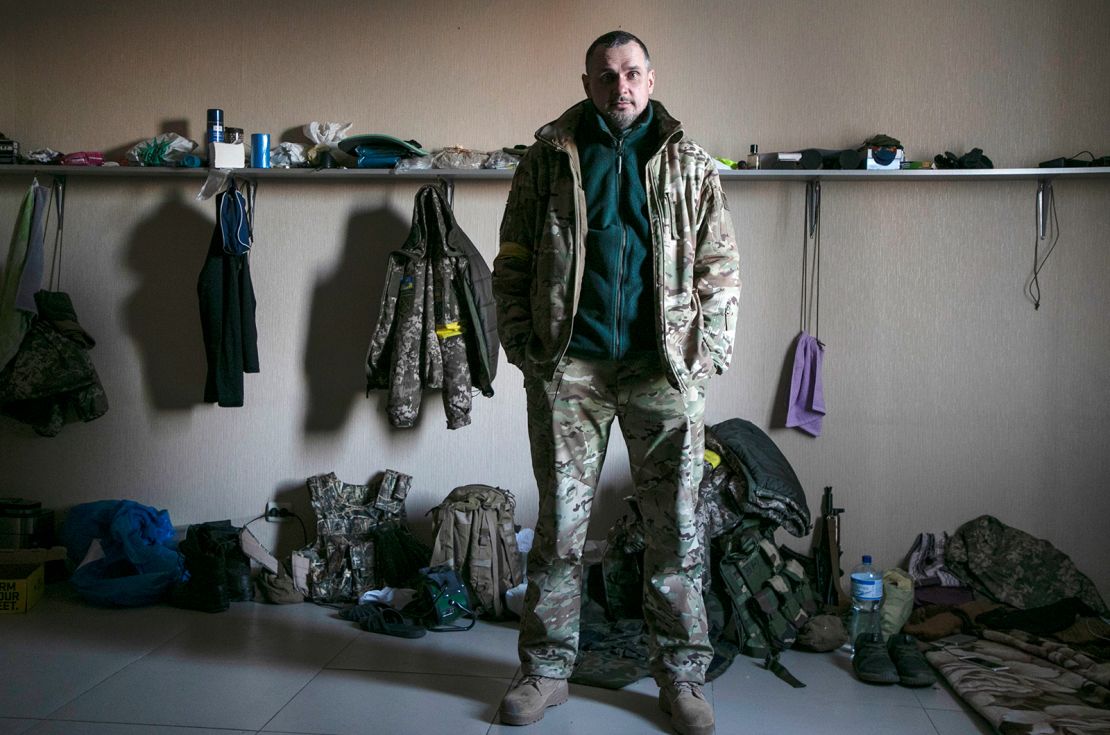
The fight for the city
The attack on Avdiivka comes as the front lines of the war remain relatively static, with Ukraine’s counteroffensive continuing to move much more slowly than initially anticipated.
Analysts say the Russian aim is to encircle the city and take over an area of high ground near an industrial facility which would give Russia effective fire control over Ukrainian supply routes.
Earlier this month, Ukrainian President Volodymyr Zelensky called the fighting in Avdiivka an “onslaught” and said the battle will be the one that in many ways will “determine the overall course of the war.”
“The more Russian forces are destroyed near Avdiivka now, the worse the overall situation and the overall course of this war will be for the enemy,” he said.
Since the start of the renewed Russian offensive on the city, Ukraine claims it has delivered massive blows to Russian military personnel and equipment. And Russia seems to have shifted to the “meat-grinder” tactic it used on Ukrainian forces defending the city of Bakhmut.
“The enemy is assaulting, throwing more and more flesh,” the head of the Avdiivka city military administration Vitalii Barabash said last month. “The Russians decided to push on, they keep going despite the losses.”
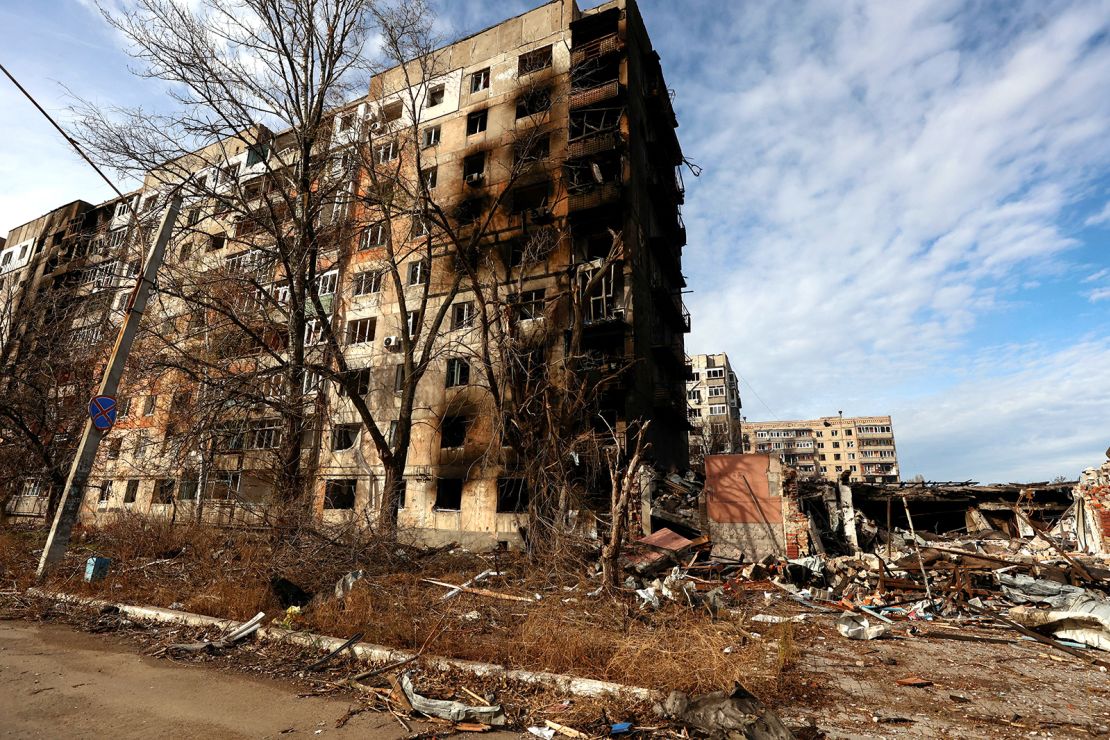
Barabash said Monday that fierce fighting continues in the industrial zone on the outskirts of a coke plant but Ukrainian troops were holding the line.
“All enemy attacks from the south and north have been repelled. The defense line is holding,” he said in a post on telegram.
“The military positions are shelled around the clock. Small arms battles continue around the clock.”
But pro-Russian bloggers claim Moscow’s forces have made some gains in the industrial zone. “This is a serious tactical success, because the AFU’s fortified defense line has been broken through there,” pro-Russian Wargonzo claimed. CNN cannot independently verify the claims.
Despite heavy 24-hour shelling, nearly 1,300 residents remain in Avdiivka, according to the National Police in Donetsk region.
Acceptance of death
Sentsov said he believes that acceptance of death is essential for those who are fighting.
“If a person does not allow the thought that he or she might be killed, there is nothing for them to do in the war. You have to accept that you can be killed. But it is always scary,” he said.
Fighting in the trenches has become an integral part of the war in Ukraine.
Small assault groups are battling for each meter of dug-up soil. Soldiers usually go in at night or morning, capture a part of the trench and start moving through it, often while the enemy troops are still there.
“This is how the war is fought. 90% of the assault actions take place in this way,” said Sentsov.
“It’s good when you hear the voices of Russians on the positions. It means that they are giving themselves away. You understand where they are. It’s worse when you don’t hear them. You think they are not there. You walk down the trench and they are there. It is an ambush.”
For Sentsov, organizing people on the set of a big movie is not much more difficult than organizing people in a unit.
“You need to have combat skills but the main thing is to organize people,” he said.
Sentsov said Ukraine must prepare for a long war and develop a strategy in case the war grinds on for years.
“We have not lost, but have not won this war yet. We need to stop thinking about what will happen after the victory and think about how to ensure this victory happens as soon as possible… There will be no victory tomorrow,” he said.
The father of four, whose youngest is just one year old, said he must continue fighting for his country’s right to exist.
“All wars are terrible. There are no good wars. People always suffer and die in war. The only question is why they suffer and why they die. Russians are being fooled by Putin’s propaganda. .. Ukrainians are fighting mostly as volunteers for their freedom on their own land,” he said.
“Right now, people are dying for freedom near Avdiivka, near Robotyne, and other places. And there is nothing more important than that.”

